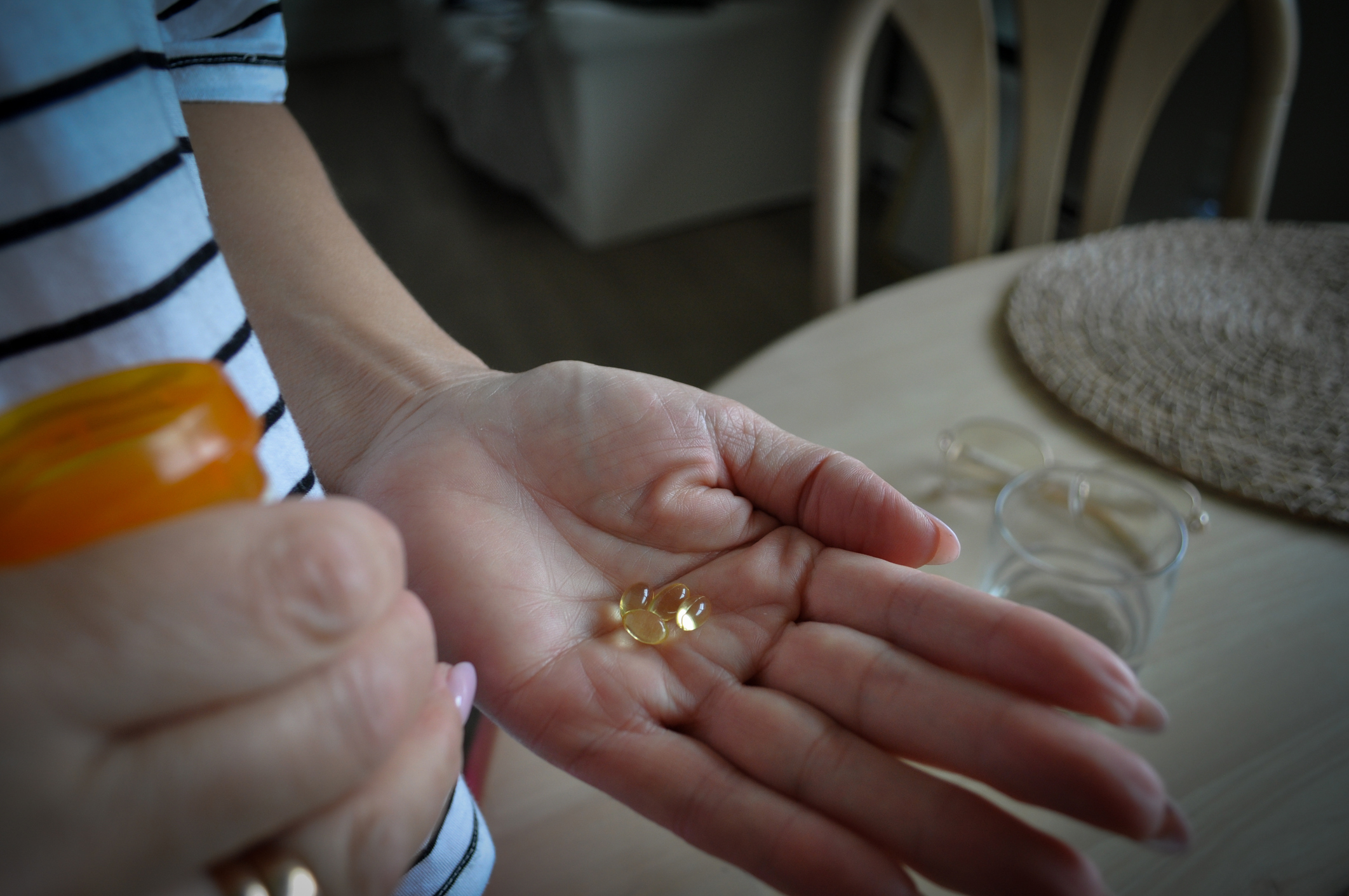Get Easy Health Digest™ in your inbox and don’t miss a thing when you subscribe today. Plus, get the free bonus report, Mother Nature’s Tips, Tricks and Remedies for Cholesterol, Blood Pressure & Blood Sugar as my way of saying welcome to the community!
What happens when you stop supplementing omega-3s

Omega-3 essential fatty acids are healthy fats your body can’t make on its own — but needs them to function.
In addition to supporting brain and eye health, omega-3 essential fatty acids are crucial for cardiovascular health, particularly in individuals at high risk.
Studies have shown omega-3s help lower triglyceride levels and reduce risks for stroke and heart attack.
In fact, the FDA has acknowledged that two of the three primary components of omega-3s — docosahexaenoic acid (DHA) and eicosapentaenoic acid (EPA) — may reduce the risk of hypertension and coronary heart disease.
So, if any single nutrient represents the importance of a nutrient-rich diet, it’s them. Omega-3s can be obtained through food by eating fatty fish a few times a week or by taking supplements.
But research from Finland has shown that EPA from fish oil affects each person’s metabolism differently, highlighting a crucial role for supporting heart health…
Metabolism and rapidly falling Omega-3 levels
It wasn’t long ago that researchers revealed that vitamin D is not a one-size-fits-all vitamin.
It looks like omega-3s may not be either….
While EPA is known to reduce cardiovascular disease in individuals with elevated blood lipid levels or heart diseases, little was known about how EPA is incorporated in lipoproteins — the particles that transport fat molecules through the bloodstream.
To find out, Finnish researchers chose 38 healthy participants and administered exceptionally high doses of EPA supplements, collecting blood samples before the supplements were given, and then during and after supplementation.
As was perhaps expected, EPA improved blood lipid profiles and reduced the tendency for lipoproteins to adhere to arterial walls, a vitally important mechanism for helping to prevent atherosclerosis.
But what surprised the researchers was the wide degree of variation in EPA’s effects among the participants.
“The samples taken during supplementation clearly show the effect of EPA on all participants. Having said that, all samples were different among the group,” says Katariina Öörni, a professor at the University of Helsinki and one of two lead authors on the study. “In other words, each individual has a unique lipoprotein lipidome in their circulation — a ‘lipid fingerprint’, if you will — that persisted despite EPA supplementation.”
This means that metabolism influences individual responses to omega-3 supplements, underscoring the importance of personalized heart health strategies.
The study also illustrated that EPA is effectively absorbed by the body, multiplying its concentration in the blood.
However, after supplementation ends, EPA levels fall rapidly. Participants with low baseline EPA levels recorded the strongest responses.
From fighting atherosclerosis to inflammation
The study was short-term in nature, so the long-term effects of EPA remain unknown. Nevertheless, the results show how EPA modifies blood lipid composition and the mechanisms associated with atherosclerosis.
The researchers plan to conduct cellular tests next to determine how EPA supplementation affects the functioning of inflammatory cells, particularly the amount of lipid mediators that suppress inflammation.
“It’s interesting to see how, for instance, dietary changes affect lipoprotein quality, or the individual lipid fingerprint,” Öörni says.
It’s also exciting that this information may lead to personalized health strategies. For now, however, a valuable piece of information may be what they learned about how quickly omega-3 levels decline when supplementation stops.
So, if you take a supplement or eat two or three servings of oily fish a week, like salmon, sardines, cod liver, herring or mackerel, keep it up to keep your levels steady.
Krill oil is an option if fish burps get in your way. However, another compelling reason to choose krill is that studies suggest it’s more readily absorbed.
According to information from the Cleveland Clinic, “It might have something to do with the DHA and EPA being found as molecules called phospholipids in krill oil. In fish oil, the DHA and EPA are stored in the form of triglycerides.”
As for how much to take, many studies have found that 500 mg of EPA and DHA is safe and effective for boosting omega-3 levels in the blood. For reference, one gram of fish oil gives you around 300 mg of combined EPA and DHA.
Editor’s note: What do you really know about stroke? The truth is, only 10% of stroke survivors recover almost completely, and all doctors can offer is what to do after a stroke occurs. That’s unacceptable considering 80% of strokes are preventable! Click here to discover how to escape The Stroke Syndrome: 5 Signs it’s Stalking You — Plus the Hidden Causes and Preventive Measures You’ve Never Heard About!
Sources:
Omega-3 benefits may vanish quickly after you stop — ScienceDaily














